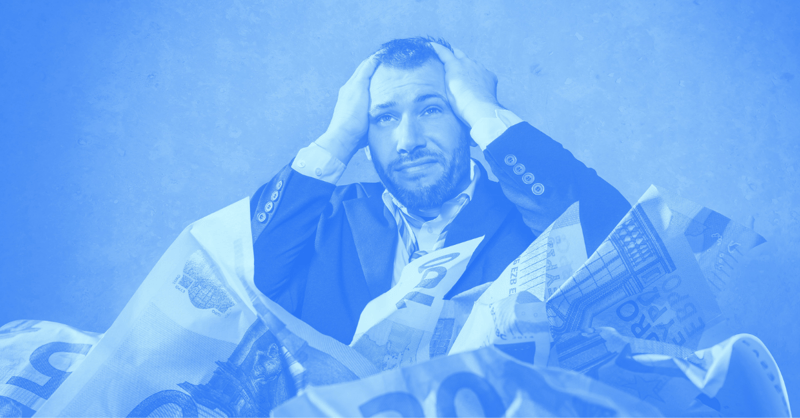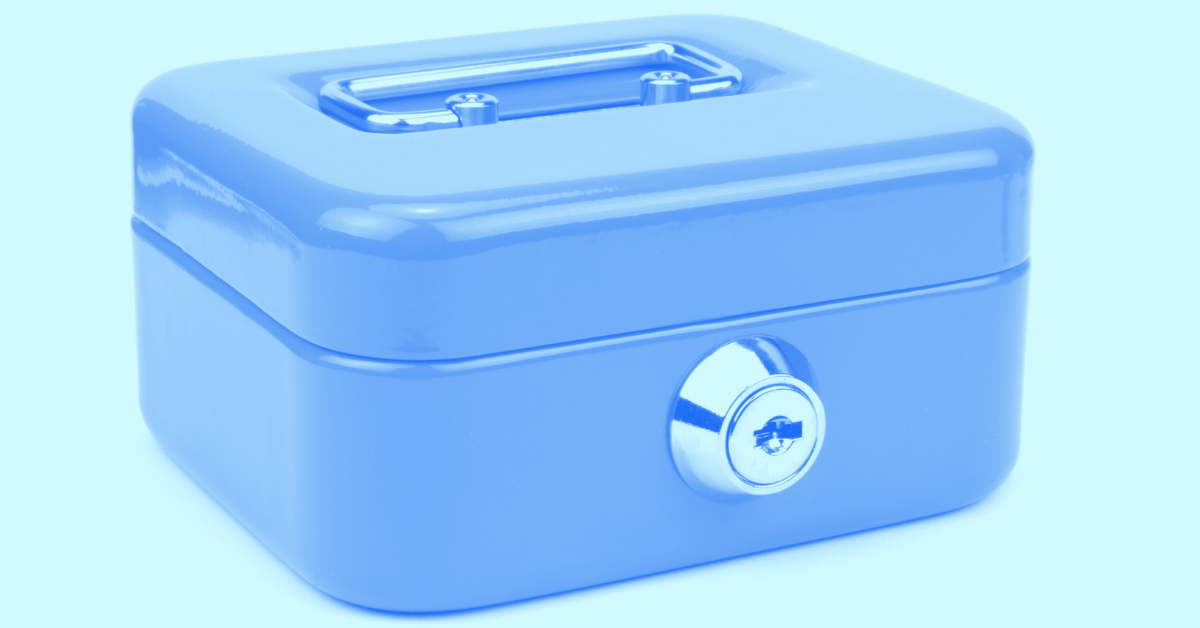Today, I want to talk to you about how debt is holding you back from living the life you’ve always dreamed of.
I will walk you through some mistakes most people make, and then show you how to avoid these debt traps.
A Debt-Fueled World
We live in a debt-driven society of “I can’t really afford it, but I want it now, so I’ll just pay with my credit card.”
You are told to grow up, go to college, graduate, get a job, get married, buy a house, buy stuff to fill the house, have kids, and live happily ever after.
Up to your eyeballs in debt!
When I graduated from Northeastern University, I had around $100,000 in total debt, combining all forms. Yikes!
I didn’t want to face that burden, so I just set up auto-payments and tried to forget about it. (Burying your head in the sand, anyone!?)
There are 3 things that happen when you take on debt:
#1. Loss of Freedom
Debt is not just a weight on your shoulders that can cause stress; it’s a shackle holding you back from taking flight and living out your dreams.
Think of all the things you want to accomplish. Do you want to open your own business? Do you want to move to a new part of the country? Maybe travel for a few months abroad?
Well, my friends, if the debt man is knocking, you need to answer.
What my debt burden did to me was close down the number of options I had. It forced me to immediately get a job so I could start making monthly payments on my loans.
I couldn’t pack up and head to Europe for a year of travel. I couldn’t do a cross-country expedition with my buddies. And I certainly couldn’t start a company out of my garage. No, I had one option: Start making money and start paying “the man.”
It wasn’t until 2016 that I had paid down enough of my debts and saved up enough money that I felt comfortable to take the plunge into entrepreneurship and begin Capable Wealth.
As you add more and more debt, whether it’s student loans, auto loan, or a mortgage, you slowly give away your freedom to make decisions and change your current path in life.
The more debt you have, the less choice you have – this means less free will.
#2. More Now Means Less Later
Economics teaches us that if we don’t use debt to improve our human capital (the ability to earn more money), then that debt is simply being borrowed from our future selves.
Why does this matter?
Well, in an extreme case, if you borrowed so much money that your monthly debt payments equaled your monthly income, you would have absolutely NO money left over each month to do anything you enjoy. And this would continue until the debts are paid off in, oooohhh, 30 years or so?! Not exactly an exciting future.
So every time you use more debt, you are really taking away enjoyment from your future self.
I can hear you now… “But Jared, Carpe Diem, man!”
Not a bad motto to live by, indeed! But why not “Carpe Diem” with the money you have, not the money you might have in the future? Or better yet, why not improve your income-earning potential by increasing your value to society, and then use that additional income to “Carpe Diem, man!”
Legendary entrepreneur, author, and motivational speaker, Jim Rohn once said:
“If you want to have more, you have to become more. For things to change, you have to change. For things to get better, you have to get better. If you improve, everything will improve for you. If you grow, your money will grow; your relationships, your health, your business, and every external effect will mirror that growth in equal correlation.”
So get out there and become more, instead of just stealing enjoyment from your future self. You’ll be thanking yourself… in the future (Spooky).
#3. Compound Interest Works Both Ways
You may have heard of the Time Value of Money and Compound Interest. Together, they form the basic concept that by investing money today and getting a return, your money can build on itself and become much more in the future.
Here’s a little secret: They work both ways! This means that the same concepts can cause a lot of damage to your financial situation if not properly monitored. And the banks know this…
For example, when you borrow money from a bank to pay for a home and only make the minimum payments each month, you are really taking away future wealth from yourself. (Click here for a strategy to save money on your mortgage)
Have you ever looked at the amortization tables for your mortgage and seen the total amount you will have paid when it’s all said and done? It’s not uncommon to end up paying almost TWICE as much for your house over the course of a 30-year mortgage!
If you buy a $250,000 home with 5% interest rate, over a 30-year mortgage you will pay just over $483,000 in total costs, with $233,000 being interest.
What You Can Do About It
I’m not saying you should never use debt, I just think it should be done responsibly.
So here are 4 things you should ask yourself each time you are looking to make a purchase:
#1. Is this something I really need or something I simply want?
More often than not, most of the things we buy on credit aren’t things we truly need. By asking yourself this simple question, you can help to minimize the unnecessary spending that you can’t truly afford.
#2. Can I pay for this with cash instead of using credit?
Forcing yourself to use only the money you have can go a long way toward keeping you financially healthy.
#3. If I decide to use debt, how quickly can I pay it off?
You want to make sure you are thinking ahead regarding how you will get rid of the debt you’re taking on. You certainly don’t want to just make the minimum payments each month.
#4. Will this purchase work toward building wealth?
This is an important question you should continuously ask yourself. The more you can say “yes” to this question, the better you are at using debt, and the brighter your future will be. (Think real estate investing)
Is There a Good Time to Use Debt?
This is a definite yes, but you have to be careful.
If you are using debt in ways that could improve your own value, which will, in turn, have the positive effect of increasing your earnings potential, then the use of debt can have a great outcome.
And if you properly use debt to buy assets that can create a positive impact on your wealth-building, then this is also a great use.
So the next time you are reaching for your credit card, take a moment to ask yourself the questions listed above.




 About the Authors
About the Authors Chad Rixse spent three years in the bank-run private wealth management world working primarily with high net worth families and individuals. As much as he enjoyed helping this demographic, he realized that many people, particularly those from his generation, were far too often left behind. He wanted to change that. His mission in life has always been to help others. As a child, he wanted to become a doctor because he found that helping others was such a rewarding experience for him. Although the medical field did not become his path, he's found another way to fulfill this mission through his firm, Millennial Wealth.
Chad Rixse spent three years in the bank-run private wealth management world working primarily with high net worth families and individuals. As much as he enjoyed helping this demographic, he realized that many people, particularly those from his generation, were far too often left behind. He wanted to change that. His mission in life has always been to help others. As a child, he wanted to become a doctor because he found that helping others was such a rewarding experience for him. Although the medical field did not become his path, he's found another way to fulfill this mission through his firm, Millennial Wealth.

